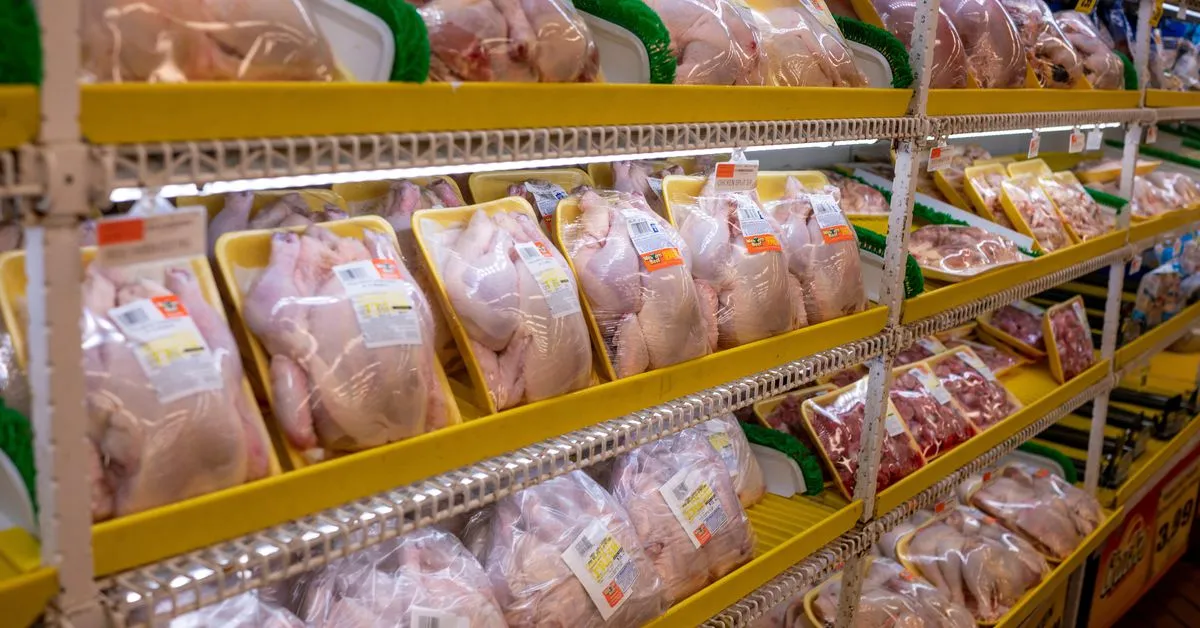Record chicken prices squeeze US shoppers, benefit Tyson Foods
Record chicken prices squeeze US shoppers, benefit Tyson Foods

Record chicken prices squeeze US shoppers, benefit Tyson Foods

Chicken prices at U.S. grocery stores have hit record highs and should stay elevated as Tyson Foods and other companies dial back poultry production to boost margins while inflation-weary shoppers buy chicken instead of beef and pork.
Higher chicken prices should improve earnings at top producers Tyson (TSN.N) and Pilgrim's Pride (PPC.O), but will pinch consumers' pockets as they try to save money by turning away from higher-end proteins. One index shows chicken producer profit margins at their highest in a year.
U.S. consumption of chicken is expected to exceed 100 pounds per person this year for the first time ever, data from the U.S. Department of Agriculture shows.
Beef consumption is forecast to drop to its lowest since 2018, as prices climb due to dwindling cattle supplies. Meanwhile, consumer spending cuts have knocked pork consumption to the lowest since 2015.
Arkansas-based Tyson, which sells all three types of meat, had to deal with a glut of chicken after earning massive profits when meat prices soared during the COVID-19 pandemic.